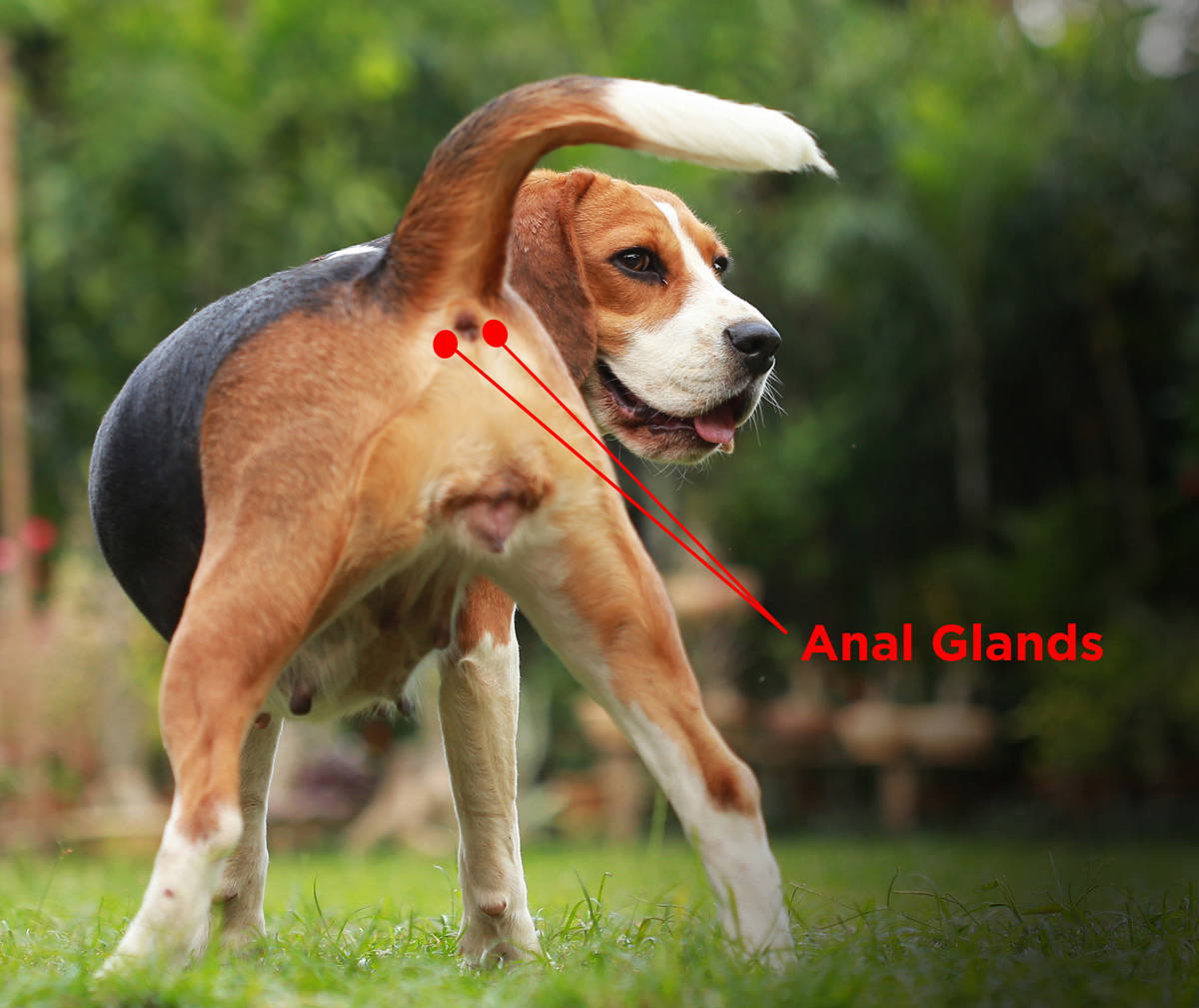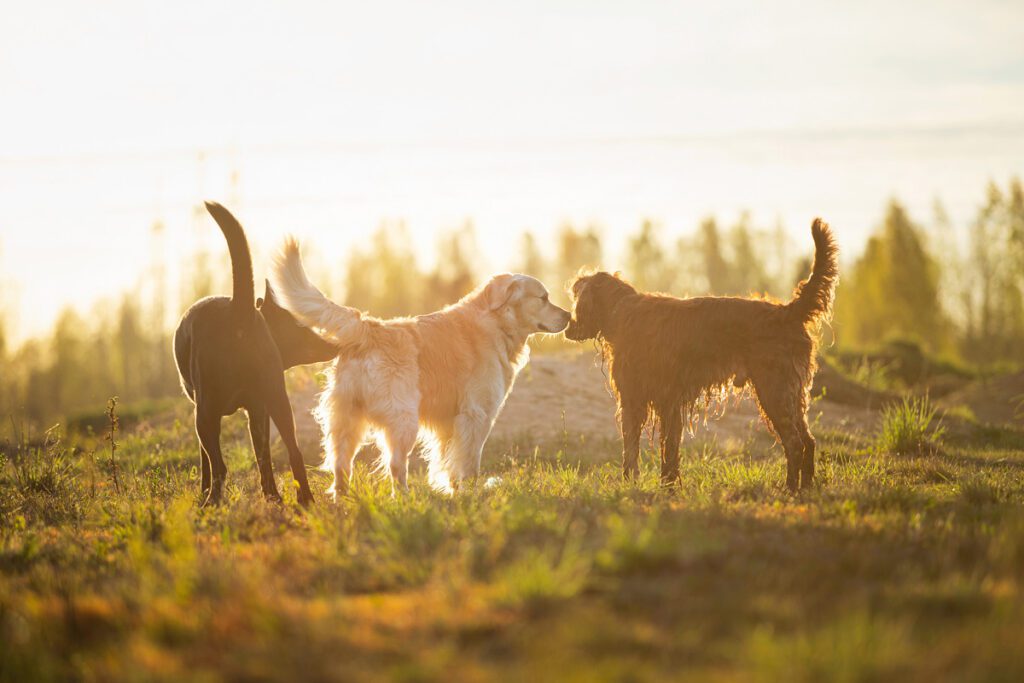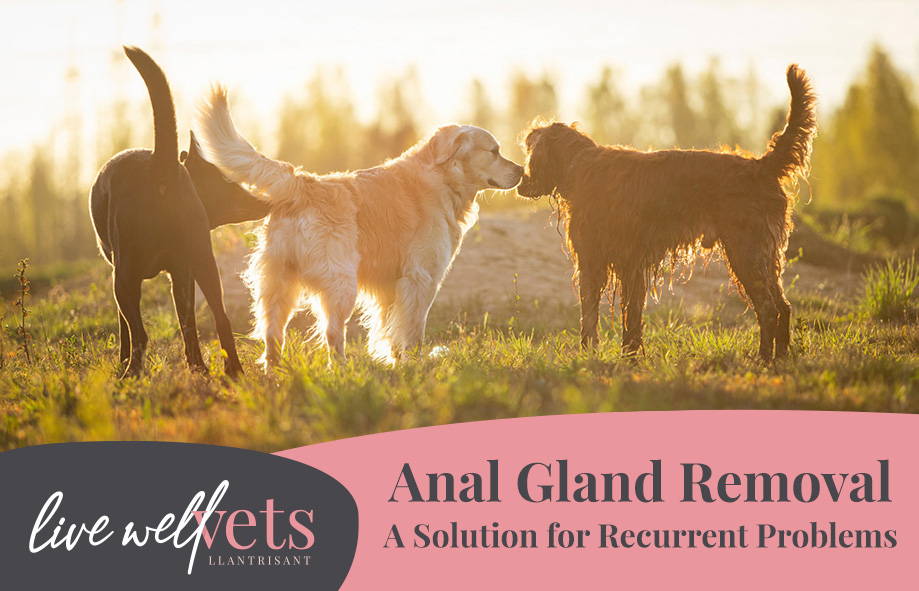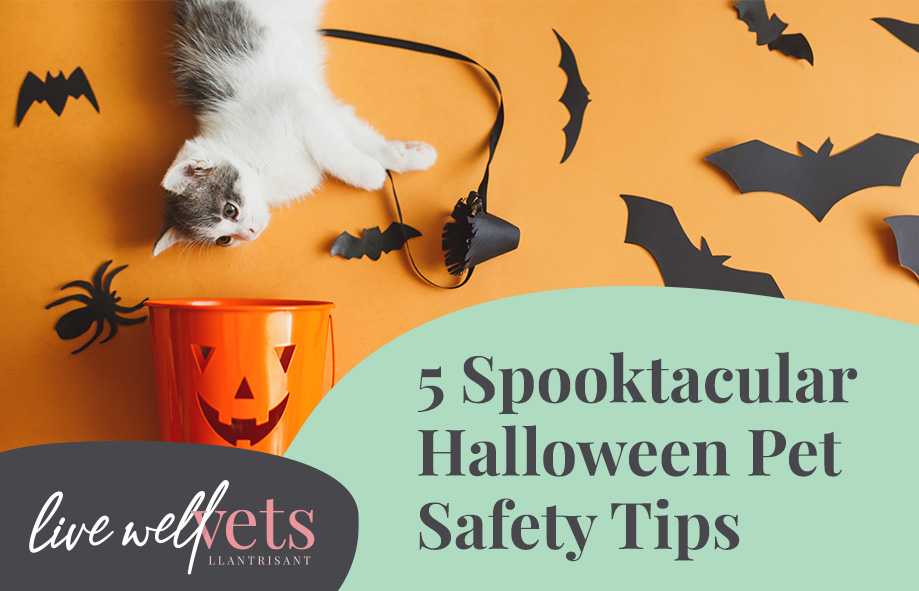As a pet owner, you may be aware of the anal glands located in your pet’s bottom, and may be aware they can cause a significant amount of trouble for some dogs and cats.
Anal glands are two small scent glands on either side of a dog or cat’s anus that empty when your pet has a bowel movement. These two tiny glands can become blocked or infected, which can cause a huge amount of trouble for some animals. Some dogs will never have problems, but some do – even cats can sometimes have problems with anal glands, although it is more common in dogs.

What are the signs of anal gland problems?
We’ve all seen dogs scooting along the floor on their bottoms, usually due to blocked anal glands. This is the most common sign, but some dogs will show much more subtle signs such as:
- licking their feet
- biting Tails
- turning to look at their bottoms
- hot spots
- crying and seeming in pain for no obvious reason
What causes problems with my pet’s anal glands?
Anal gland problems can be caused by various factors, such as:
- obesity,
- abnormal gland position,
- poor dietary fibre,
- allergic skin problems,
- infection,
- chronic inflammation,
- and neoplasias
Common problems with anal glands
Infections and blocking are the most common anal gland problems pets experience, leading to discomfort and painful experiences during gland expression.
We will often swab pets we suspect of having anal gland infections to see if they require antibiotics – often, there are resistant bacteria in anal glands so it’s important we use antibiotics responsibly.
Unfortunately, some dogs suffer from repeated problems and this becomes a painful and upsetting experience to have them expressed. This doesn’t mean they have to put up with the discomfort, which is why in some cases we recommend surgical removal of the anal glands to provide relief.
Repeat infections can lead to recurring abscesses, causing significant discomfort for your pet. However, anal gland removal surgery provides a long-term solution to alleviate the irritation and pain that your pet may experience.
Anal glands are not needed for any other reason than to scent, therefore there is no negative impact if they are removed.
Surgery can provide relief for pets that experience recurrent anal gland problems, always speak to your vet if you are at all concerned about your pet.

Supect issues or considering removal?
Anal gland problems can cause significant discomfort for some dogs and cats. In some cases, anal gland removal surgery is a viable solution to alleviate the discomfort caused by recurrent anal gland problems.
If you suspect your pet is experiencing anal gland problems, do not hesitate to contact us. Our team of vets and nurses are always available to discuss this procedure with pet owners and explain the benefits of anal gland removal for pets.



